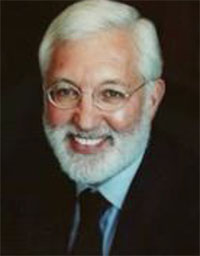Criminal Law
Views From The Bench On Sentencing Representation: Part 1
This article is republished with permission from Law360

By Alan Ellis
In an article published in the fall 2015 issue of the American Bar Association’s Criminal Justice magazine (“Advice from the Bench for White Collar Client Facing Sentencing”), I shared some of what I have learned from federal judges during my nearly 50 years of practice.[1] After that article published, I felt that an expanded, in-depth article that featured the experience, philosophy and viewpoints of those and other federal judges was needed. Law360 agreed, and a multipart series was born.
For this first installment of the series, I interviewed two federal judges at length and asked them to share some do’s and don’ts for lawyers who appear before them at sentencing. Future articles in the series will feature interviews with other U.S. district court judges.
Senior Judge Jed Rakoff of the Southern District of New York emphasizes how important it is to “know your judge.” If you are not familiar with him or her, ask other lawyers, particularly the federal defender in the district. A judge’s former law clerks are another good source of information. One of the things that you may want to ask them is whether the judge reads sentencing memos and character letters, and how long those letters should be.

“The number of character letters is not that important, it’s quality that counts,” says Judge Rakoff. “What I am looking for is good deeds that are unknown to others. For example, a defendant who has done something for a neighbor without any thoughts of obtaining anything in return.” He also notes that one thing a character letter should not state is that the writer “can’t believe that the defendant did what he was convicted of.” Data and statistics from the court, the other federal courts in the state, the circuit and nationwide, mean “zilch” to Judge Rakoff. “However, if you have a case on point that is factually and legally close to your case, wherein another judge in the district has imposed a relatively low sentence, it carries some weight with me — assuming, of course, that I know and respect that judge,” he says.
Judges want to hear from your client at sentencing, Judge Rakoff asserts. He suggests that if your client can make a good allocution, “don’t save him until the end of the sentencing after hours’ worth of legal argument.” It is acceptable for a defendant to read his allocution, provided it sounds like the client’s own words rather than something scripted by his or her lawyer.
On the other hand, Judge Rakoff is wary of victim impact statements that urge a particular sentence. “What do they know about the federal criminal justice system?”
Nor is he a big fan of the sentencing guidelines. He advises lawyers to avoid wasting a judge’s time addressing guideline issues unless they are absolutely crucial to the case. He especially disfavors boilerplate citations to Booker and the 18 U.S.C. §3553(e) factors.
On the other hand, Judge Rakoff welcomes a reasonable, well-principled sentence suggestion. However, he warns that a lawyer can lose credibility by requesting an unreasonably low sentence. “Also, it is a mistake to vouch for your client unless you are sure of what you are saying,” he adds. “A lawyer’s reputation for veracity is very important. We judges talk among ourselves about lawyers and their credibility.”
Asked what a lawyer can do when he/she has a client who has been convicted of a exceptionally heinous offense, Judge Rakoff contends that there generally is something good to be said about everyone. “I don’t know a single judge who doesn’t recognize that he has a human being in front of him being sentenced,” he says.

Senior Judge Mark Bennett of the Northern District of Iowa agrees that lawyers should minimize citations in their sentencing memoranda. “I get annoyed when lawyers cite Booker and the 18 U.S.C. §3553(a) factors, as if I didn’t know the law,” he says. He also recommends that sentencing memoranda ideally should be between 10 and 20 pages and cautions, “Don’t repeat what is in the pre-sentence investigation report.”
He adds that he appreciates “defendants who attempt treatment for substance abuse. Even if they have relapsed, I understand relapse is a part of addiction and I won’t hold it against the defendant.”
In child pornography cases, risk assessments are important to Judge Bennett, who emphasizes that “whenever you are going to use an expert, I put a lot of stock in an expert who I know and respect.”
Judge Bennett describes sexual contact offenses as “troubling.” “In child pornography cases, if the defendant did not believe what he was doing was a crime, I will consider that as a mitigation factor,” he says.
As for psychological reports, Judge Bennett finds it is sometimes better for a lawyer to present a solid report rather than bring in an expert witness and subject him to cross-examination. Again, the report is more likely to be influential if the judge knows and respects the expert who made it.
Judge Bennett puts a lot of stock in collateral civil consequences, particularly if an individual in a small community is shunned by the neighbors. “This has a big impact on me,” he says.
As for data and statistics, Judge Bennett agrees with Judge Rakoff and puts little stock in them, but notes that “it is important, since I sentence so many people, if a defense lawyer reminds me of a particular sentence that I imposed in a particular case that is similar.”
Also like Judge Rakoff, if Judge Bennett knows and respects a fellow judge, it is often helpful to point out that, in a very similar case, the other judge imposed a sentence that the lawyer is advocating for his own client. Otherwise, Judge Bennett says that data and statistics have virtually no impact on his sentencing decision.
Asked about sentencing videos, Judge Bennett says that he’s not yet seen one, but he has seen “day in the life” videos in civil cases, and finds them often to be impactful. He advises that even pictures could be helpful.
When asked if they are willing to entertain requests for a judicial recommendation to the Bureau of Prisons for designation and placement, Judge Bennett said he would never recommend a facility that he was not familiar with without discussing it with the defendant and counsel.
Judge Rakoff shared that he almost always recommends the facility requested by defense counsel.
As for voluntary surrendering, Judge Bennett says that except for those defendants who are mandatorily detained at plea or verdict, he makes “an individual assessment of the statutory factors.” He adds that, “if the government agrees, I always allow self-reporting and sometimes allow it over the objection of the government, especially if the defendant is not a current drug addict.” Judge Rakoff says he always agrees to a self-surrender, saying, “I’ve never had a defendant fail to appear when he is supposed to.”
Conclusion
In my nearly 50 years of practicing federal criminal law, I have appeared before judges across the country, and have worked with many defendants and attorneys. Yet, there is always more to learn, which is what has been so fascinating about the process of interviewing the judges for this series.
As I analyzed the information shared during the interviews, some consistent themes became apparent.
First and foremost, judges feel criminal defense lawyers are falling down on the job when it comes to sentencing. Simply stated, judges say they are not getting the information they need during the sentencing phase of a case.
While the judges appreciate a lawyer’s vigorous defense of their client, lawyers are cautioned to remember that the court is your audience. For example, recommending a ridiculously low sentence to impress your clients damages the creditability of the other aspects of the information presented in the judges’ eyes.
When asked which of the cases coming before them the judges find most challenging, the judges were in agreement: while collar cases where vulnerable people have been defrauded. Lawyers need to do an effective job at humanizing such clients. Future articles in the series will explain how.
—By Alan Ellis, The Law Offices of Alan Ellis
Alan Ellis, a past president of the National Association of Criminal Defense Lawyers, is a criminal defense lawyer with offices in San Francisco and New York. He was awarded a Fulbright Senior Specialist Award by the U.S. State Department to conduct lectures in China on American criminal law in the fall of 2007. The opinions expressed are those of the author(s) and do not necessarily reflect the views of the firm, its clients, or Portfolio Media Inc., or any of its or their respective affiliates. This article is for general information purposes and is not intended to be and should not be taken as legal advice.
[1]http://www.americanbar.org/content/dam/aba/publications/criminal_justice_magazine/2015_fall_cj.authcheckdam.pdf
